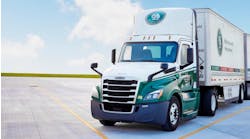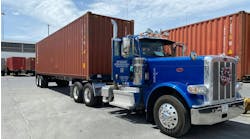Cargo theft is a growing problem for the transportation industry. The situation is especially acute because trucks are one of the preferred targets of organized cargo crime rings.
Losses due to cargo theft run between $10 billion and $15 billion annually. And according to the National Cargo Security Council (NCSC), motor carriers are the victims in 85% of all cargo theft, the majority of which takes place at terminals, transfer facilities, and cargo consolidation areas.
But this may be just the tip of the iceberg. A 1999 DOT study says that chronic under-reporting is masking the true extent of the problem. “Only 40% of businesses or individuals actually report theft…The FBI also acknowledges that its estimates may not reflect the losses of smaller transportation facilities and cargo stolen in regions not affiliated with the FBI's cargo criminal apprehension programs or task forces.”
If indirect costs are factored in, total losses are estimated to be between $20 billion and $60 billion a year, the report states. This includes the cost of filing, investigating, and paying claims, but not expenses related to law enforcement and security technology.
FLEET OWNER talked with Brett Millar, a special agent with the FBI, about cargo theft. “Right now, we don't have hard statistics on the scope of the problem. It can be reported any number of ways — as larceny, or as kidnapping and robbery when a truck is hi-jacked.” The situation is further compounded by carriers' hesitancy to report it because they're concerned about rising insurance premiums and giving information to competitors.
Millar says cargo crime is increasing because it's a lucrative enterprise with a low risk of violence and jail time. “Thieves can get almost the same price for stolen goods such as computers and high-end garments as their legitimate counterparts,” he points out. As for punishment, first-time offenders may end up with as little as probation. So there's a limit to what law enforcement can do. The transportation industry itself must do the bulk of the heavy lifting when it comes to stopping cargo crime.
“A lot of cargo thefts result from driver and dispatcher collusion with thieves. The ‘fences’ that sell stolen merchandise can now actually place orders for certain goods,” says Millar.
“The transportation industry needs to get more involved: report all cargo crimes, work more closely with law enforcement, and crack down on the gaps in organizations that let thieves in.”


